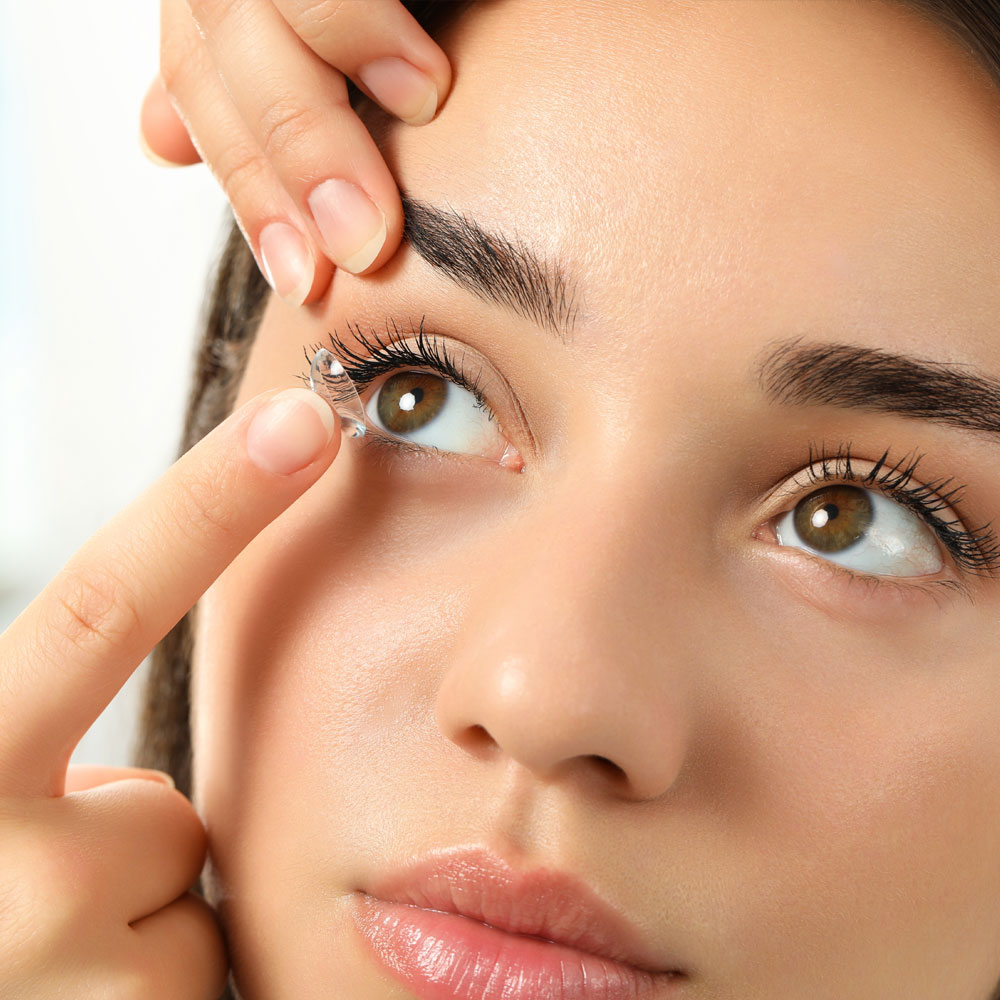
Your Holly Springs Eye Doctor
About Carolina Family Vision
Established in 2009, Carolina Family Vision was founded on the idea of building a practice where doctors can spend time with patients and give them the personal attention they deserve.
We specialize in full-service, personalized care for patients of all ages. Our doctors and optometric professionals have the technical knowledge and expertise to cater to your eye care needs. We offer comprehensive eye exams, the diagnosis and treatment of eye diseases, dry eye treatment, LASIK co-management, contact lenses, and contact lens fitting.

Our Eye Care Services

Comprehensive Eye Exams
From updating your eyeglasses prescription to detection and treatment of eye diseases, comprehensive eye exams are important for continued visual health.

Contact Lens Exams
During a contact lens exam, your eye doctor will check if you are a good candidate for contacts and find the best type of contacts for your needs..

Dry Eyes
Do you have dry, itchy, gritty-feeling eyes? Dry eye syndrome is a very common condition. We offer dry eye treatments at our eye care clinic.
Children with myopia are at higher risk for potentially sight-threatening vision problems. Save your child’s vision with myopia management.
If cataracts go untreated, they can cause total blindness in the affected eye. We can help with co-management of your cataract removal surgery.
Macular degeneration can cause severe central vision loss if not detected and treated early on. We can help preserve your vision.
Presbyopia is a normal part of aging. If you’re past 40 and notice you can’t read up close, our eye doctors may be able to help.
While vision can change drastically in the senior years, these changes shouldn't have to impair one's quality of life. The earlier these problems are detected and treated, the more likely proper eye care can help you retain good vision.
Scleral lenses are a great option for those with severe dry eye or abnormally-shaped corneas. Is this comfortable alternative to traditional contacts right for you?
Orthokeratology is a non-invasive vision correction alternative to LASIK. Put in the specialty lenses while you sleep, and experience better vision in the morning.
Eyeglasses & Frames
Designer Frames
Our extensive optical section offers a wide variety of eyeglass frames in every style, material & design. Come visit us today to see for yourself!
Our expert optical team can find just the right pair of glasses for you to be confident and look your best.
Lens coatings improve visual comfort, make it easier to clean your glasses and ensure your lenses last longer. Coatings include anti-scratch, anti-reflective, photochromatic and UV / blue light filters.
Contact Lenses
Contact Lens Fitting
We offer a wide range of contact lens options from dailies, monthly to multifocal contact lenses for crystal clear vision and superior comfort.
During a contact lens exam, your eye doctor will check if you are a good candidate for contacts and find the best type of contacts for your needs.

Buy One, Get One 50% Off Eyeglasses
*Requires purchase of complete prescription pairs, including frame and lenses. Discount applied to complete pair of equal or lesser value. Does not include sunglass frames,Barton Perreira, Cartier, Cazal, Chanel, Cutler and Gross, Dior, Dita Lancier, Fendi, Gucci, ic!Berlin, l.a. Eyeworks, Maui Jim, Mykita, Nifties, Oakley, Oliver Peoples, Persol, Ray-Ban, Robert Marc, Salt, Salvatore Ferragamo, Skaga, Silhouette, Tom Ford, WOOW, accessories, contact lenses, or medical procedures. Cannot be combined with any other discounts, promotions, or insurance plans. Not valid on previous orders. Other restrictions may apply. See practice for full details. Offer valid 04/08/2024-06/16/2024. 24AEG-729313





















